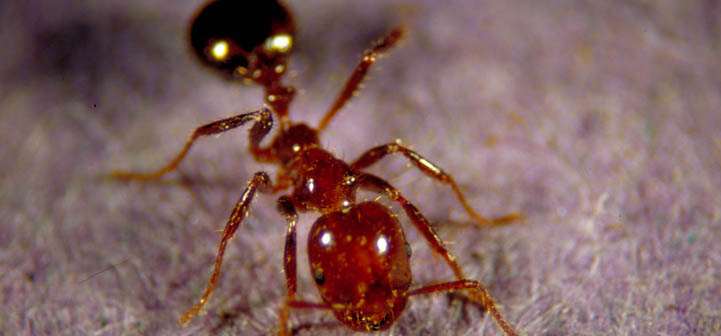Home Remedies
In addition to very hot or boiling water, other “home remedies” have been tried. While these methods sometimes appear to work, they rarely eliminate colonies. Usually, the ant colony simply moves to a new location because of the disturbance, or the queen and a few workers temporarily remain hidden underground.
Gasoline and other petroleum products do kill some fire ant colonies. However, petroleum products are dangerously flammable or explosive, kill grass and plants around the treated mounds, and can seriously pollute the soil and ground water. All too often they cause the colonies to move instead of killing them. Using petroleum products, solvents, battery acids, bleaches or ammonia products can be dangerous and is strongly discouraged, except when they are ingredients in a registered pesticide product accompanied by usage directions.
Soap solutions, cleaning products or wood ashes soaked into the mound are believed to remove the protective wax coating from the ants or suffocate them. Generally, their use is discouraged because they have not been proven effective or this use is not supported by the product(s) manufacturer. Some solutions containing citrus oil and other ingredients may be effective as mound drench treatments. Citrus oil contains a natural extract of citrus peels (d-limonene, the active ingredient in Victor Safer Brand Fire Ant Killer) that is toxic to fire ants and has been advocated for use in some home recipes as an ant mound drench.
Sprinkling grits or other solid food substances onto fire ant mounds is ineffective. It has been suggested that when the ants eat the grits their stomachs will swell and rupture. In fact, only the last larval stage of the developing fire ant is known to digest solid food. All other life stages feed only on liquids or greasy materials. Likewise, club soda is also not an effective strategy.
See also
